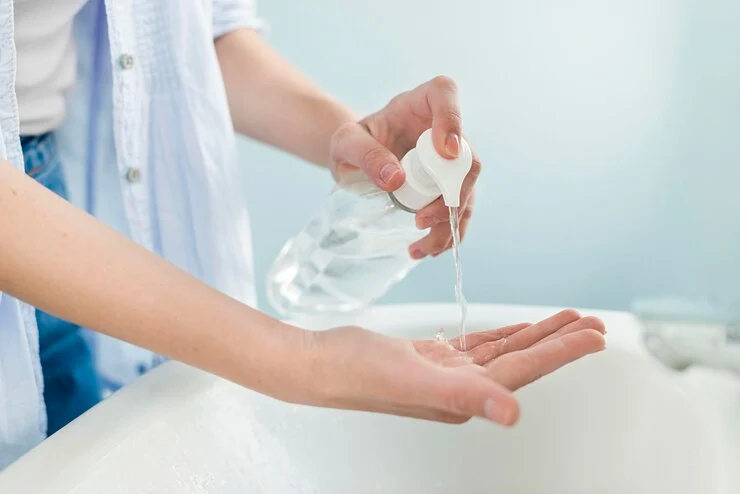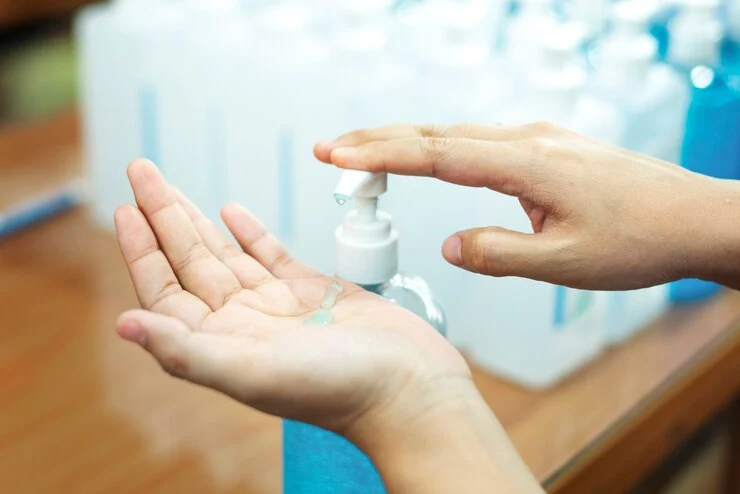In the modern age, hand sanitizers have become ingrained in our routines, especially with increasing focus on health and hygiene. However, repeated application of conventional sanitizers can often result in parched, cracked skin. This is where the brilliance of moisturizing hand sanitizers shines through. By marrying potent germ-eliminating agents with skin-nourishing elements, these products ensure that your hands remain soft, supple, and clean. Below, we’ll unravel everything about moisturizing hand sanitizers, addressing essential queries and common concerns.
What Exactly Is a Moisturizing Hand Sanitizer?
A moisturizing hand sanitizer does more than merely cleanse your hands. It actively hydrates to combat the dryness traditional sanitizers induce. Regular sanitizers typically use alcohol as the primary agent for disinfection, but moisturizing versions incorporate soothing ingredients like aloe vera, glycerin, and essential oils. These additions help counterbalance the harsh effects of alcohol, ensuring that your hands stay refreshed and smooth after every application.
Why Do Standard Hand Sanitizers Dehydrate Your Skin?
Conventional sanitizers heavily rely on alcohol due to its superior efficacy in killing bacteria and viruses. Yet, alcohol also strips your skin of its natural oils, leading to dryness, irritation, and in severe cases, cracked skin. This is especially problematic for individuals who frequently sanitize their hands or live in cold climates where the skin is already more susceptible to dryness.
The Benefits of Moisturizing Hand Sanitizers
Hydration Meets Protection
Moisturizing hand sanitizers are crafted to alleviate the drying impact of alcohol by introducing hydrating components. Commonly, you’ll find aloe vera and glycerin as key ingredients that lock in moisture, ensuring your hands feel soft and nourished post-use.
Potent Germ Defense
Despite the infusion of hydrating properties, moisturizing sanitizers retain their germ-fighting abilities, eliminating 99.9% of bacteria. They contain the same alcohol concentration as traditional sanitizers, but with added skincare benefits.
Gentle on Sensitive Skin
For those with delicate or eczema-prone skin, conventional sanitizers can aggravate irritation. Moisturizing sanitizers, on the other hand, offer a soothing solution that protects without triggering flare-ups, making them suitable for daily use.
Key Components of Moisturizing Hand Sanitizers
Aloe Vera
Aloe vera, a revered natural moisturizer, is known for its calming and hydrating effects. It replenishes lost moisture while creating a protective layer that shields the skin from further drying.
Glycerin
Glycerin, a humectant, attracts moisture from the air to the skin. This vital ingredient in many moisturizers ensures that your hands remain hydrated even after the alcohol in the sanitizer evaporates.
Vitamin E
Vitamin E is celebrated for its skin-repairing and nourishing attributes. It aids in healing dry, cracked skin and serves as a powerful antioxidant that shields your skin from environmental harm.
Essential Oils
Some moisturizing hand sanitizers also feature essential oils like lavender or tea tree oil, which not only impart a pleasant fragrance but also provide additional antibacterial and skin-conditioning benefits.

How to Select the Best Moisturizing Hand Sanitizer?
When choosing a moisturizing hand sanitizer, consider the following factors to ensure you find a product that meets your needs:
Alcohol Concentration
Ensure the sanitizer contains at least 60% alcohol, as this is the recommended amount for effective germ-killing power. However, balance it with moisturizing ingredients to avoid skin dryness.
Hydrating Additives
Look for sanitizers enriched with ingredients like glycerin, aloe vera, or vitamin E. These components help maintain the skin’s natural moisture and prevent irritation.
Sensitivity Considerations
If you have sensitive skin, opt for sanitizers labeled hypoallergenic or dermatologically tested. Avoid those with synthetic fragrances or dyes, which can further irritate your skin.
Fragrance Preferences
While some sanitizers are fragrance-free, others include essential oils for a subtle, natural scent. If you prefer a lightly scented product, select sanitizers that use natural fragrances like lavender or citrus oils.
When Should You Use a Moisturizing Hand Sanitizer?
While washing your hands with soap and water remains the most effective method for cleanliness, there are situations where hand sanitizers become indispensable:
- When you’re on the move and can’t access soap and water.
- After touching frequently handled surfaces like doorknobs, shopping carts, or elevator buttons.
- Before and after eating, especially in public spaces.
- After coughing or sneezing into your hands.
- In healthcare environments where regular hand sanitization is essential.
Using a moisturizing hand sanitizer in these scenarios keeps your hands germ-free without sacrificing hydration.
DIY Moisturizing Hand Sanitizers: Are They Safe?
With the heightened demand for sanitizers, many people have turned to crafting their own at home. While it’s feasible to create an effective DIY version, it’s crucial to adhere to WHO guidelines to ensure the correct alcohol concentration is maintained for germ protection. If you’re adding moisturizing ingredients like aloe vera or glycerin, be sure to mix them well, so the alcohol concentration doesn’t dip below the recommended 60%.
For those unfamiliar with making their own, purchasing a reputable pre-made moisturizing hand sanitizer remains the safest and most reliable option.
Moisturizing Hand Sanitizer vs. Hand Cream: Do You Need Both?
You may wonder if using a moisturizing hand sanitizer negates the need for a separate hand cream. While moisturizing sanitizers do help with hydration, they aren’t a replacement for hand cream, particularly for individuals with very dry skin. Hand creams offer richer formulations that provide deeper, long-lasting moisture, whereas sanitizers are designed for quick hydration and germ protection on the go.
Conclusion
Moisturizing hand sanitizers strike the perfect balance between hygiene and skin care. By choosing a product that incorporates both alcohol for germ defense and moisturizing agents like aloe vera or glycerin, you can keep your hands soft, nourished, and clean. Whether you have sensitive skin or are simply looking to avoid the drying effects of regular sanitizers, a moisturizing hand sanitizer is a valuable addition to your daily hygiene routine.
